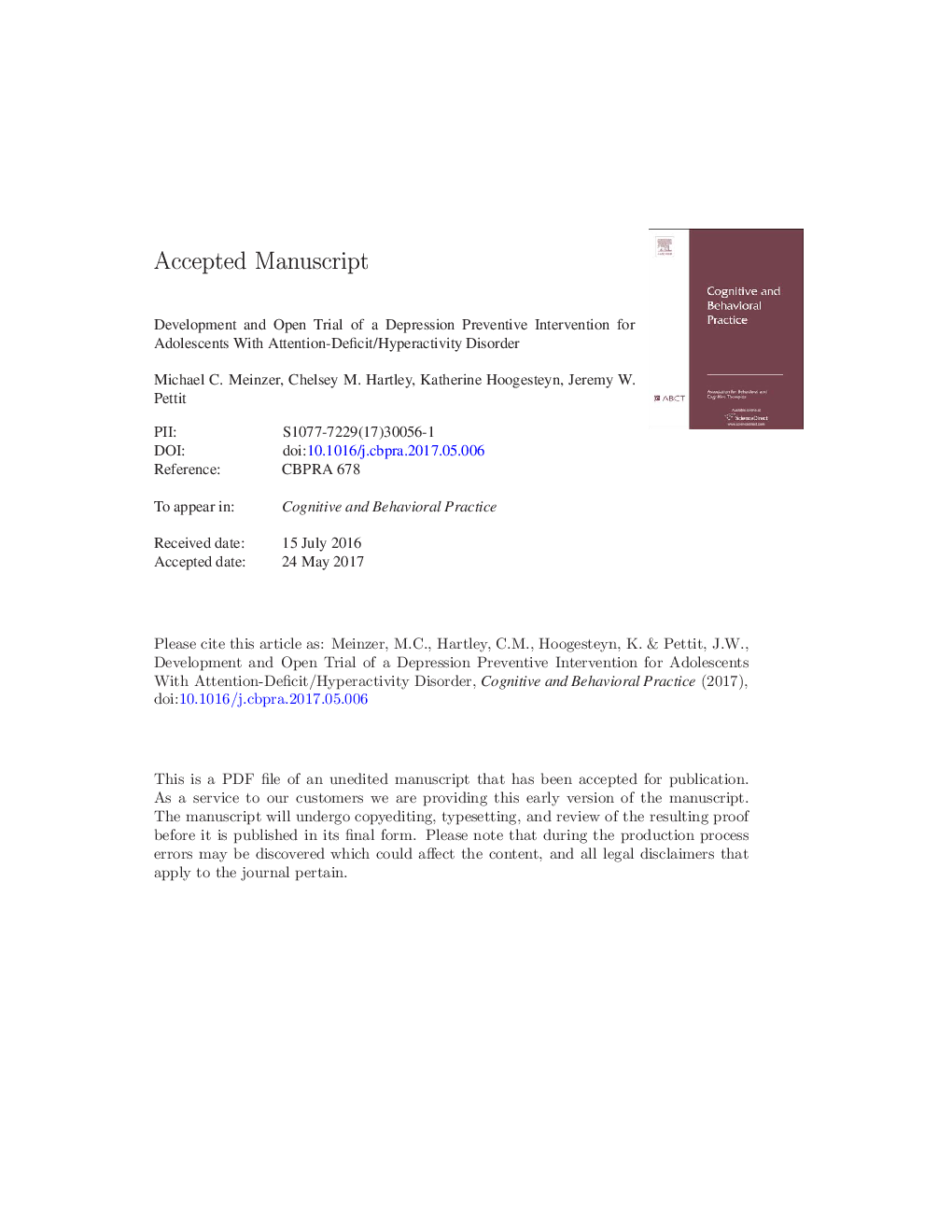ترجمه فارسی عنوان مقاله
توسعه و بازجویی مداخله پیشگیری از افسردگی برای نوجوانان مبتلا به اختلال کمبود توجه / بیش فعالی
عنوان انگلیسی
Development and Open Trial of a Depression Preventive Intervention for Adolescents With Attention-Deficit/Hyperactivity Disorder
| کد مقاله | سال انتشار | تعداد صفحات مقاله انگلیسی |
|---|---|---|
| 116618 | 2018 | 28 صفحه PDF |
منبع

Publisher : Elsevier - Science Direct (الزویر - ساینس دایرکت)
Journal : Cognitive and Behavioral Practice, Volume 25, Issue 2, May 2018, Pages 225-239
ترجمه کلمات کلیدی
بیش فعالی، افسردگی، بلوغ، همبودی، وجود همزمان دو بیماری، مداخله پیشگیرانه،
کلمات کلیدی انگلیسی
ADHD; depression; adolescence; comorbidity; preventive intervention;

